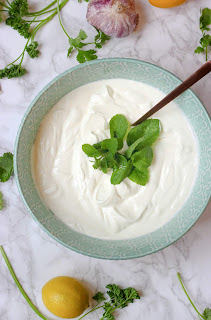Experts state that there are many benefits of foods such as dates, soups, eggs, and yogurt, especially in Ramadan. Nutrition and Dietetic Specialists also provided important information about the benefits of foods that increased in Ramadan.
Nutrition and Diet
Specialist pointed out that the consumption of dates and
rose fruits, which increase in consumption in the month of Ramadan, contains an important nutritional value in terms of healthy nutrition.
Date
Date; It is a good
source of fiber, rich in nutritional value, vitamin, and mineral
content. It is often consumed instead of dessert. It contains folic
acid, magnesium, potassium, phosphorus, iron, and sodium. It reduces
fatigue and is good for anemia. It has an increasing effect on breast
milk.
It facilitates
digestion, is good for constipation. Due to its high fiber structure, the
sugar contained in its content has a long mixing time. It is good for
sweet crises. It gives a feeling of satiety.
Soup
Soup; Our soups,
which are indispensable for our kitchen, are also included in our tables by
doubling their benefits in Ramadan. The soup that is drunk at the
beginning of the meal prevents us from eating fast food, contributes to the
reach of the toughness signals to the brain, and it has an effect on appetite
control.
After prolonged
starvation, it prevents a lot of food. It prevents digestive problems,
relaxes the stomach, and is good for constipation. Chicken broth, lentil, Ezo Gelin, peppermint yogurt, vegetable soups are friendly to digestion.
Bread and cereal group
It is a fiber-rich food
group. It prolongs the toughness period. It provides appetite
control. Bread types, bulgur pilaf, buckwheat pilaf, pasta types, oats are
included in this group. It is rich in B group vitamins except for vitamin B12.
Choosing rye, whole
wheat, buckwheat bread, homemade noodles and whole wheat pasta in pasta keeps
you full while preventing your constipation problem. It does not raise
your blood sugar quickly. Cereal groups also contain vitamin E and
beneficial oils.
Supports for skin
health. Ramadan pita, which is one of our most indispensable items, is in
this group. It is made of whole wheat flour and the egg one is richer in
nutritional.
Egg
In addition to
containing many vitamins and minerals, it is the best quality protein. It
is one of the most nutritious foods for a long time. It strengthens the
brain, protects eye health, increases body resistance. Thanks to its rich
feature of selenium, it fights cancer and is a supporter of thyroid patients.
In Ramadan,
he is the king of sweets. Having a milk dessert is advantageous in terms
of blood sugar compared to sherbet desserts. It is light, its energy
content is not too high. It is in the group of walnut, hazelnut, peanut
useful oils (omega-3).
The amount of sugar
added to its content can be reduced and served with fruit. Milk makes it
rich in calcium and protein.
Tamarind sherbet
It is the most common
benefit to quench thirst. It balances stomach acid and prevents
heartburn. It softens the intestines. It is rich in vitamin
C. It cleans the liver of toxins.
Yogurt
Yogurt is the
most accessible food that protects intestinal health. It regulates bloodpressure and supports muscle development. It balances cholesterol
values. It prevents your desire for dessert. It can be consumed in
both iftar and Sahar.
The wet mint added to
yogurt reduces your need for water during the day. Likewise in tzatziki
made from yogurt. Cucumber is among the foods with high water value.
Curd cheese
The amount of protein is
high, the amount of salt is low, the feeling of satiety is high. Prefer
curd cheese with egg allergy. Curd cheese added to the soups prolongs the
feeling of satiety. The calcium amount is quite high, it supports bone health.
Spices
Turmeric reduces
appetite, prevents cumin gas problems, and gives a feeling of satiety, cinnamon
and cloves balance your blood sugar, black pepper and ginger support your
immune system, and thyme facilitates digestion. "












